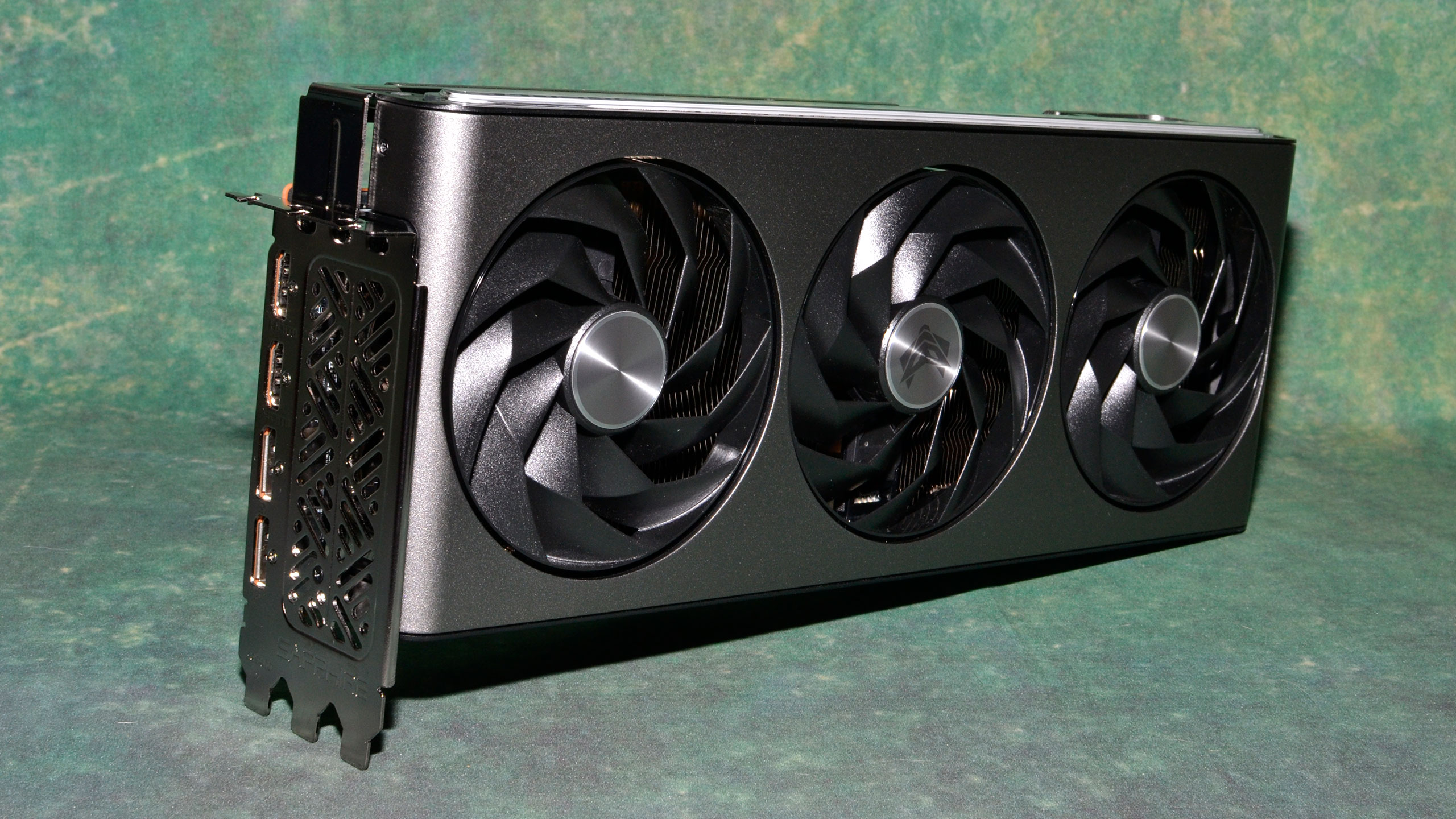Why you can trust Tom's Hardware
Our 1080p ultra tests will shrink the gaps a bit, as CPU bottlenecks start to come into a play a bit more. And if you're only wondering about whether you should pick up the Sapphire RX 7800 XT Nitro+ or a reference card — or perhaps another model — you're not going to see any major performance differences.
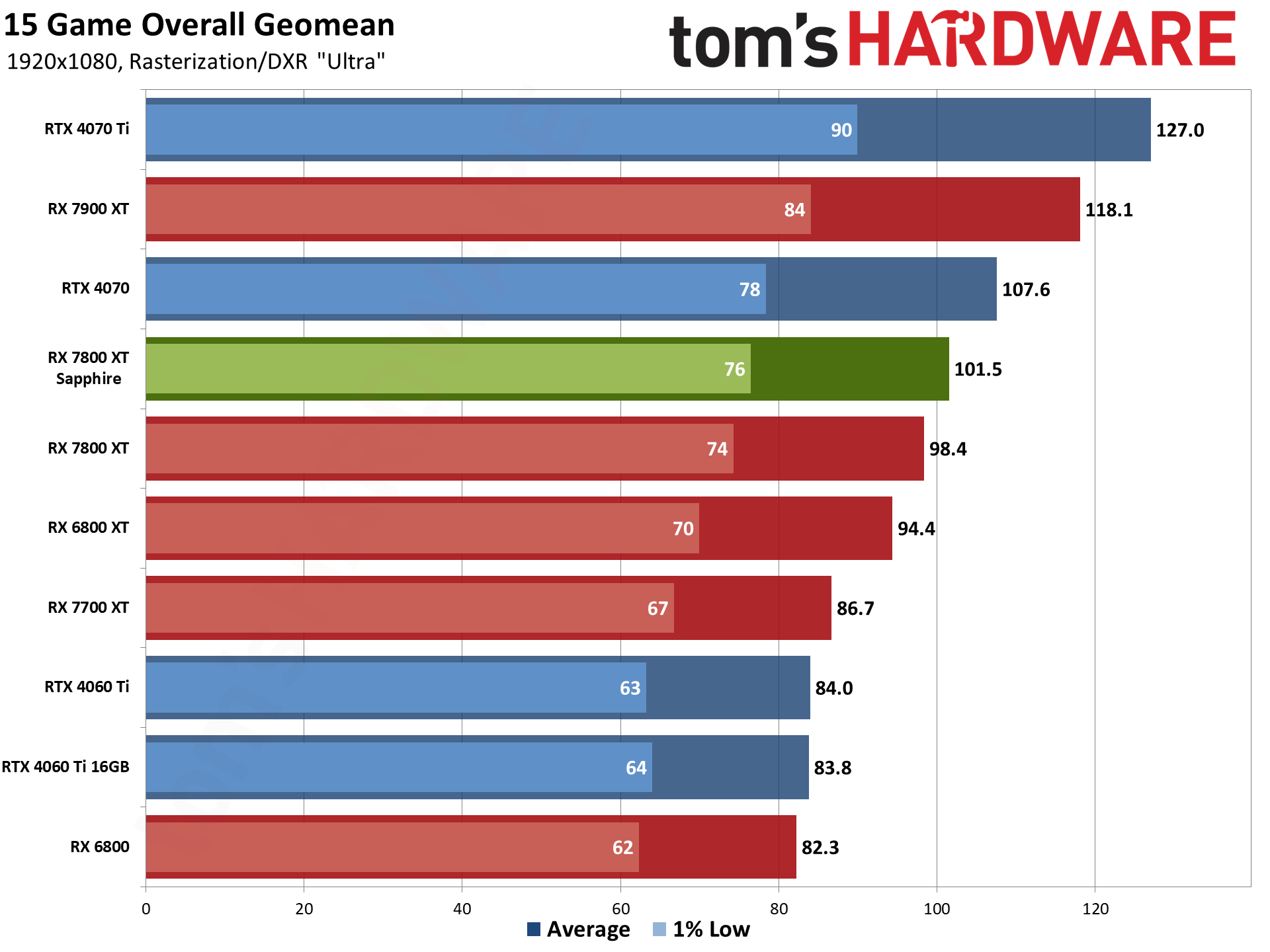
Overall, the Sapphire card leads the reference 7800 XT by 3.2% at 1080p ultra, a slightly closer margin than before. Nvidia's RTX 4070 does gain some ground, however, as the 12GB and 192-bit interface become slightly less of a limiting factor at 1080p. Sapphire's Nitro+ falls 5.6% behind the 4070 Founders Edition this time.
Of course, average framerates are now above 100 fps for both GPUs, so unless you have a high refresh rate monitor, the current need for this level of hardware to run 1080p is a bit questionable. As more complex games come out, though, their requirements will continue to increase.
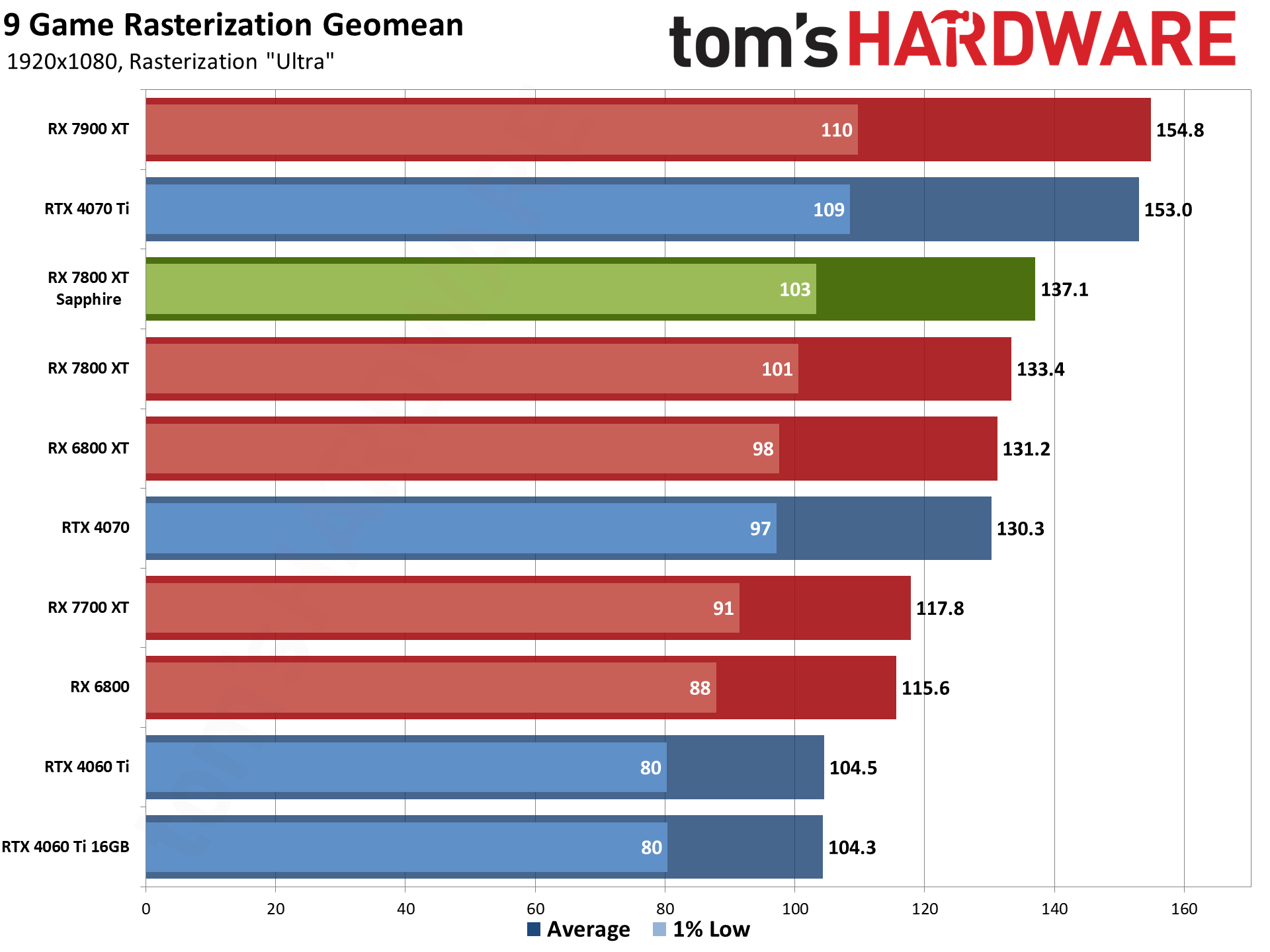
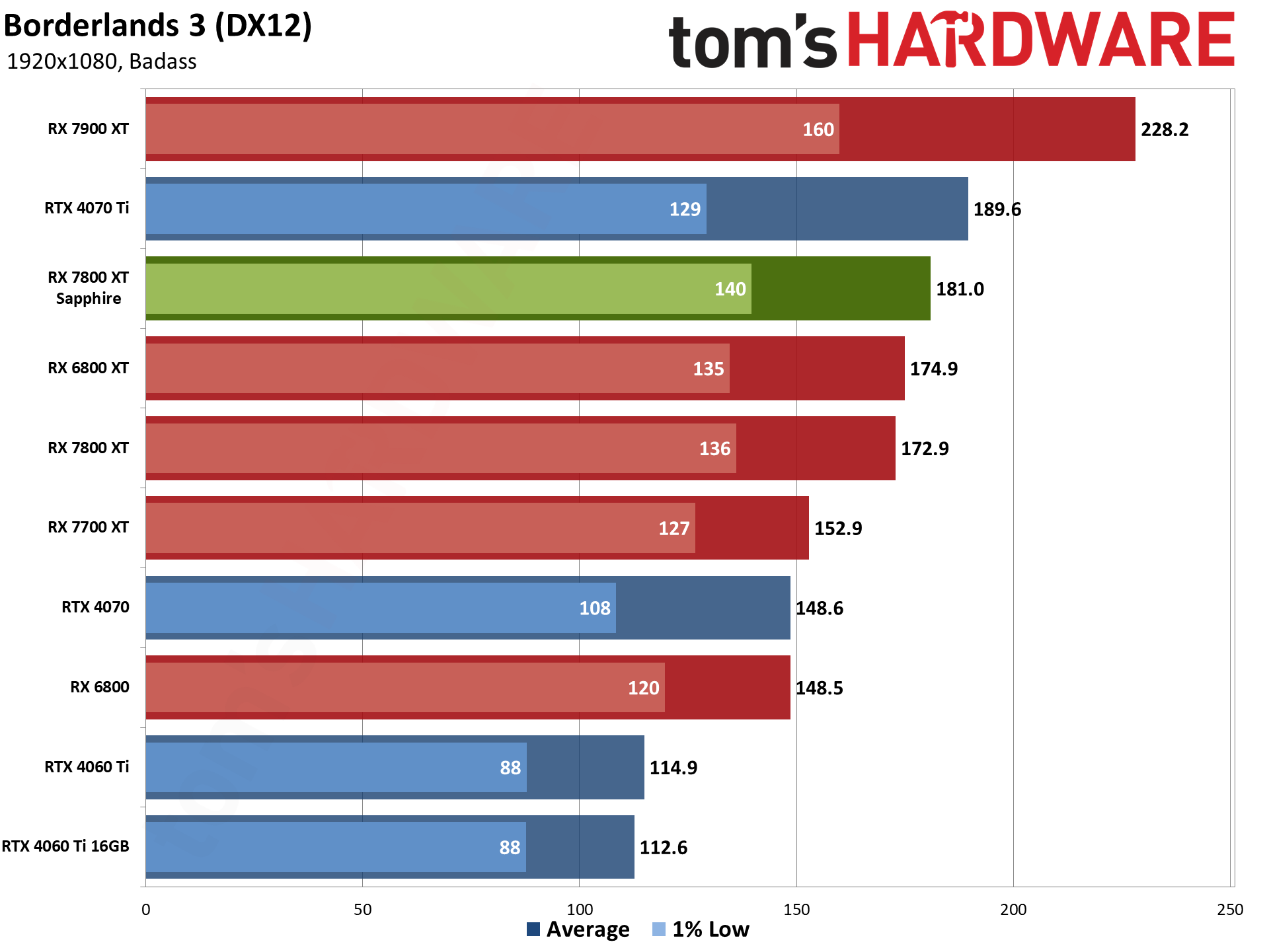
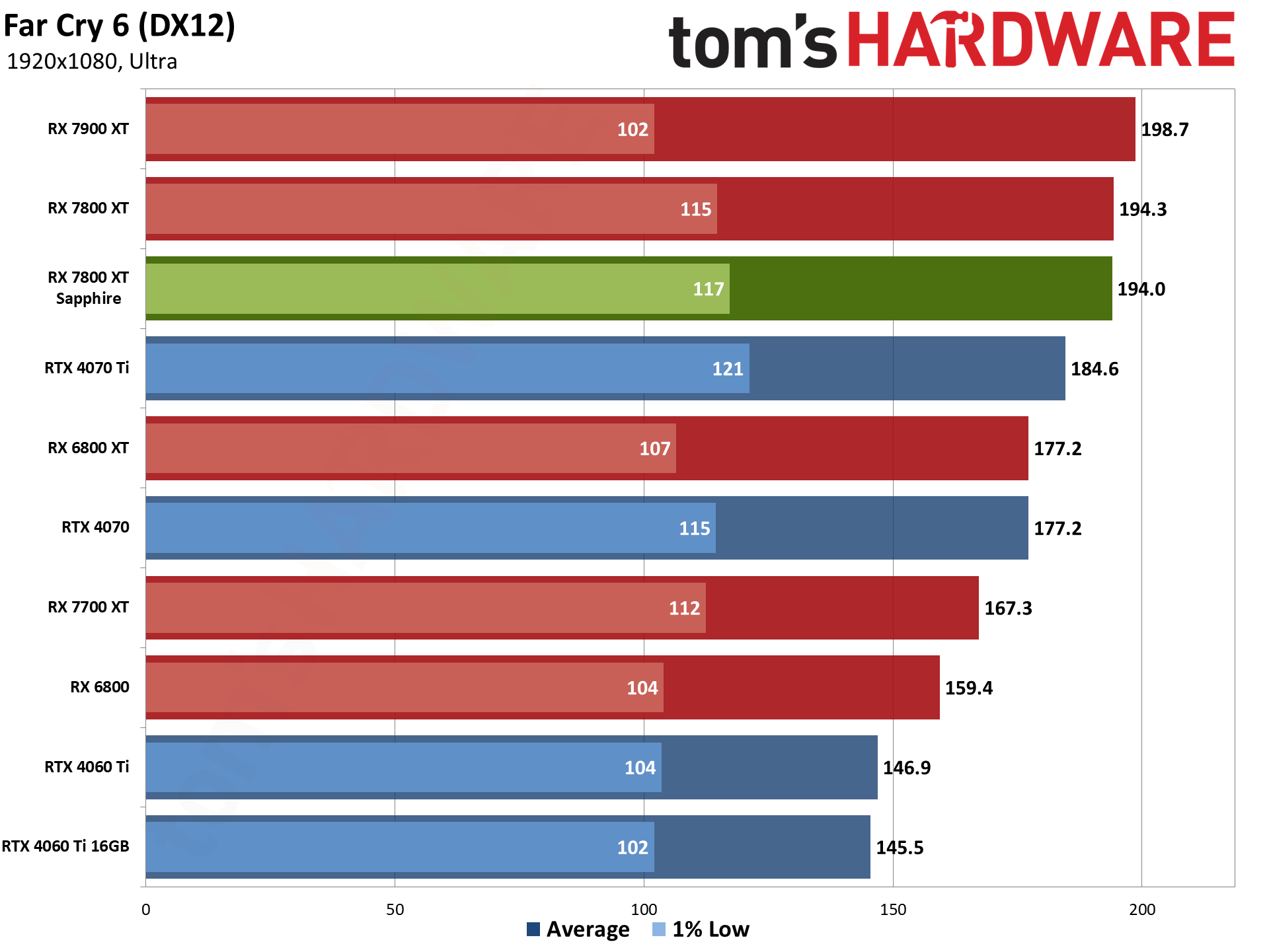
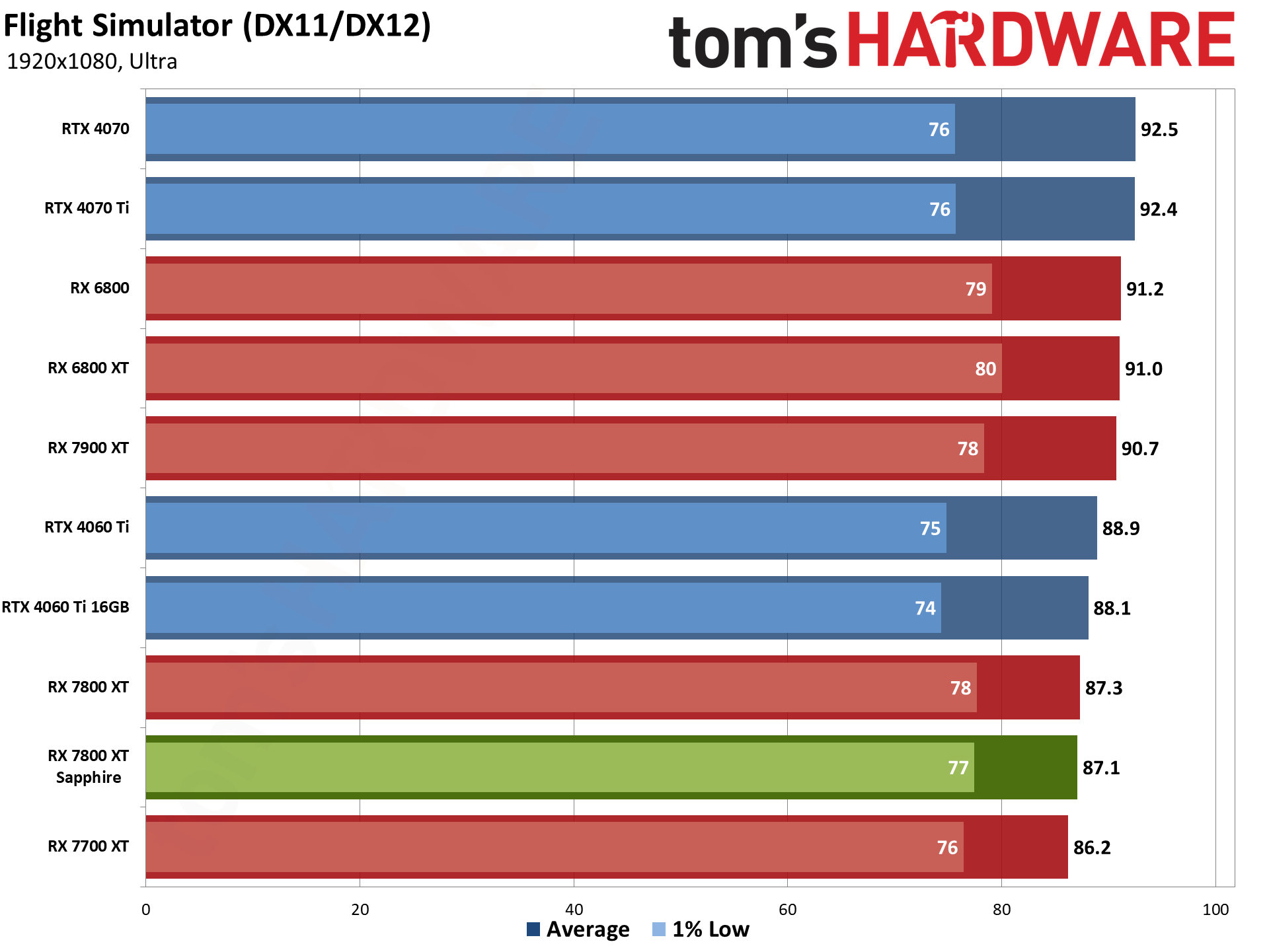
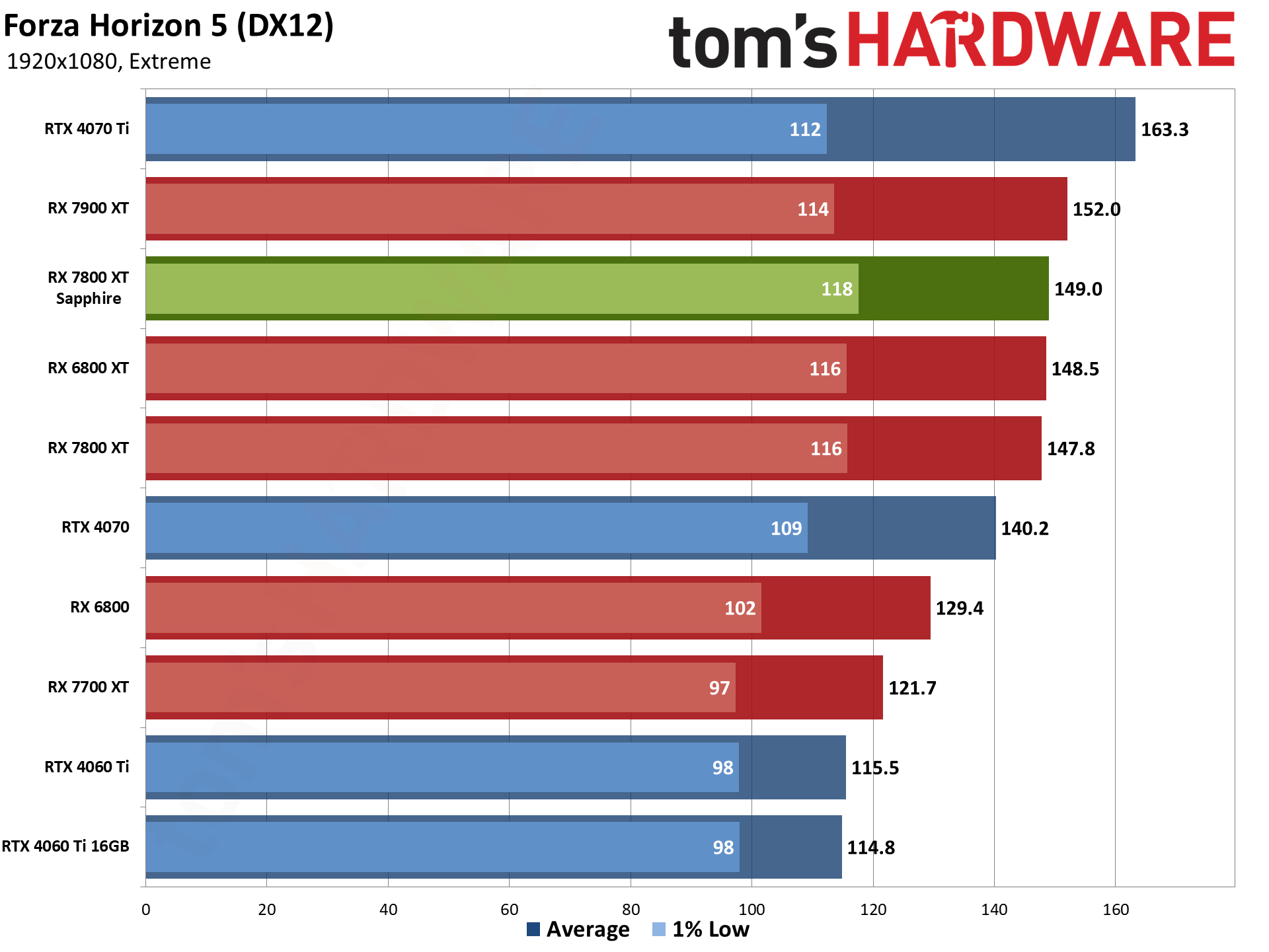
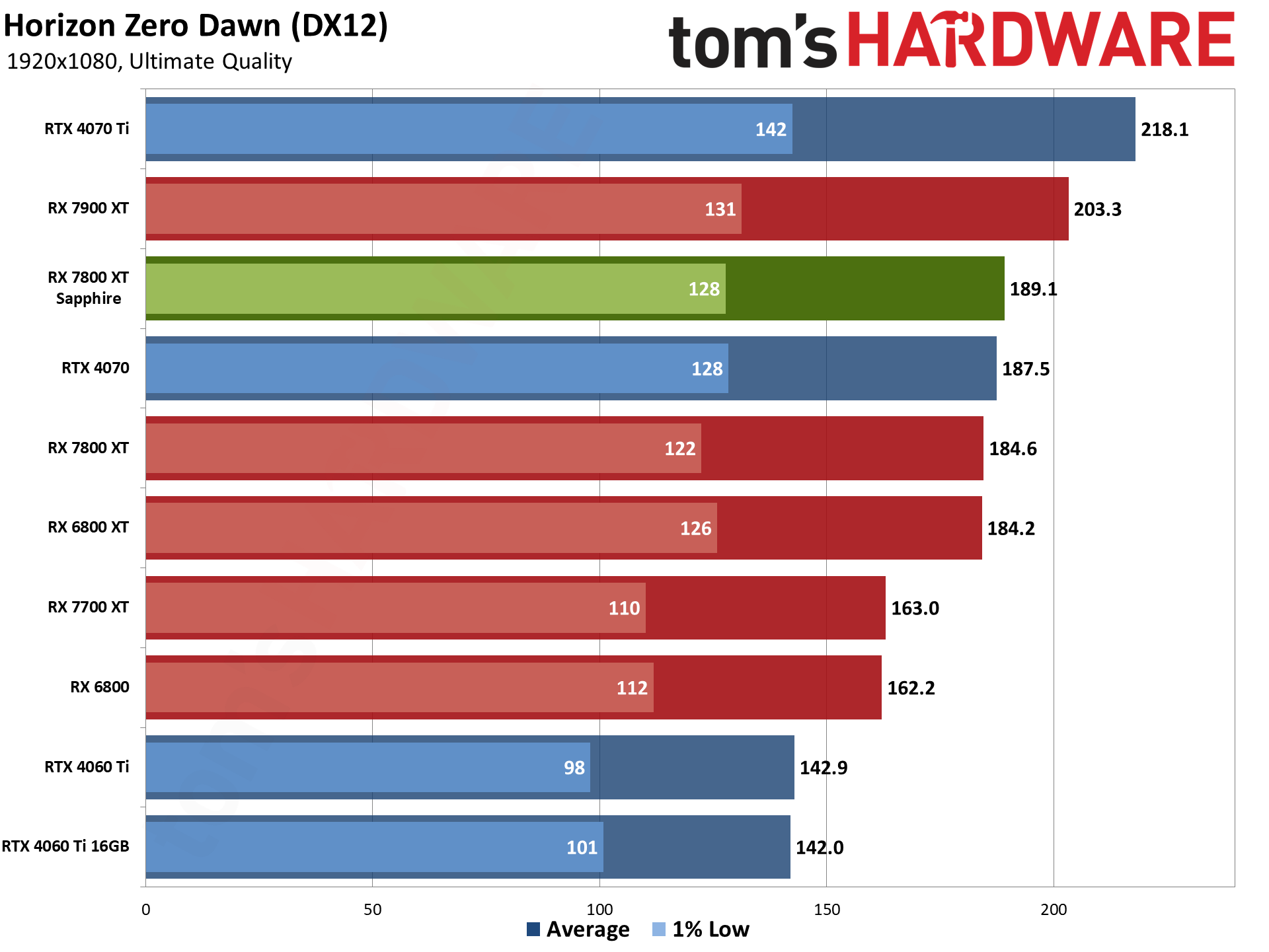
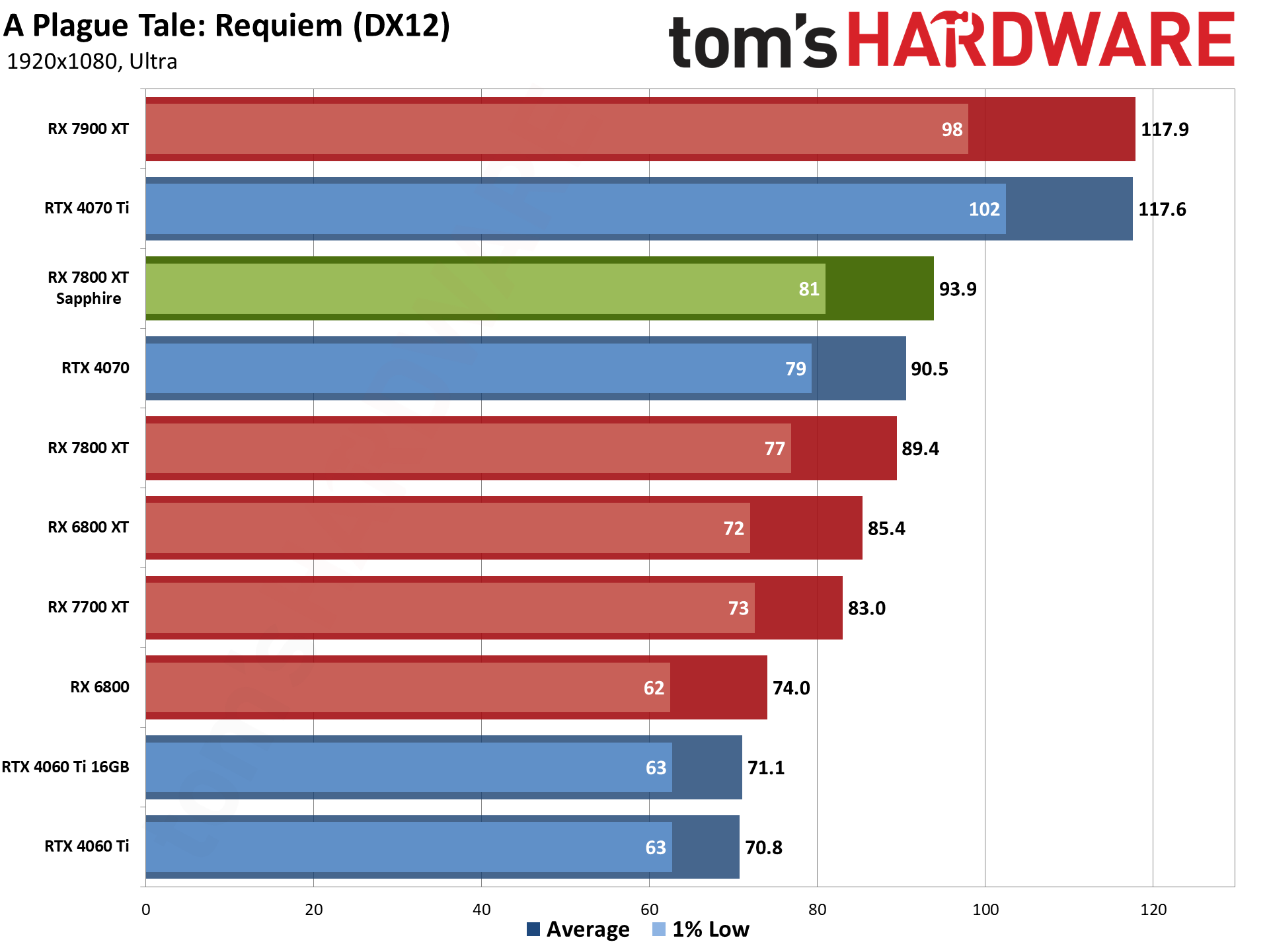
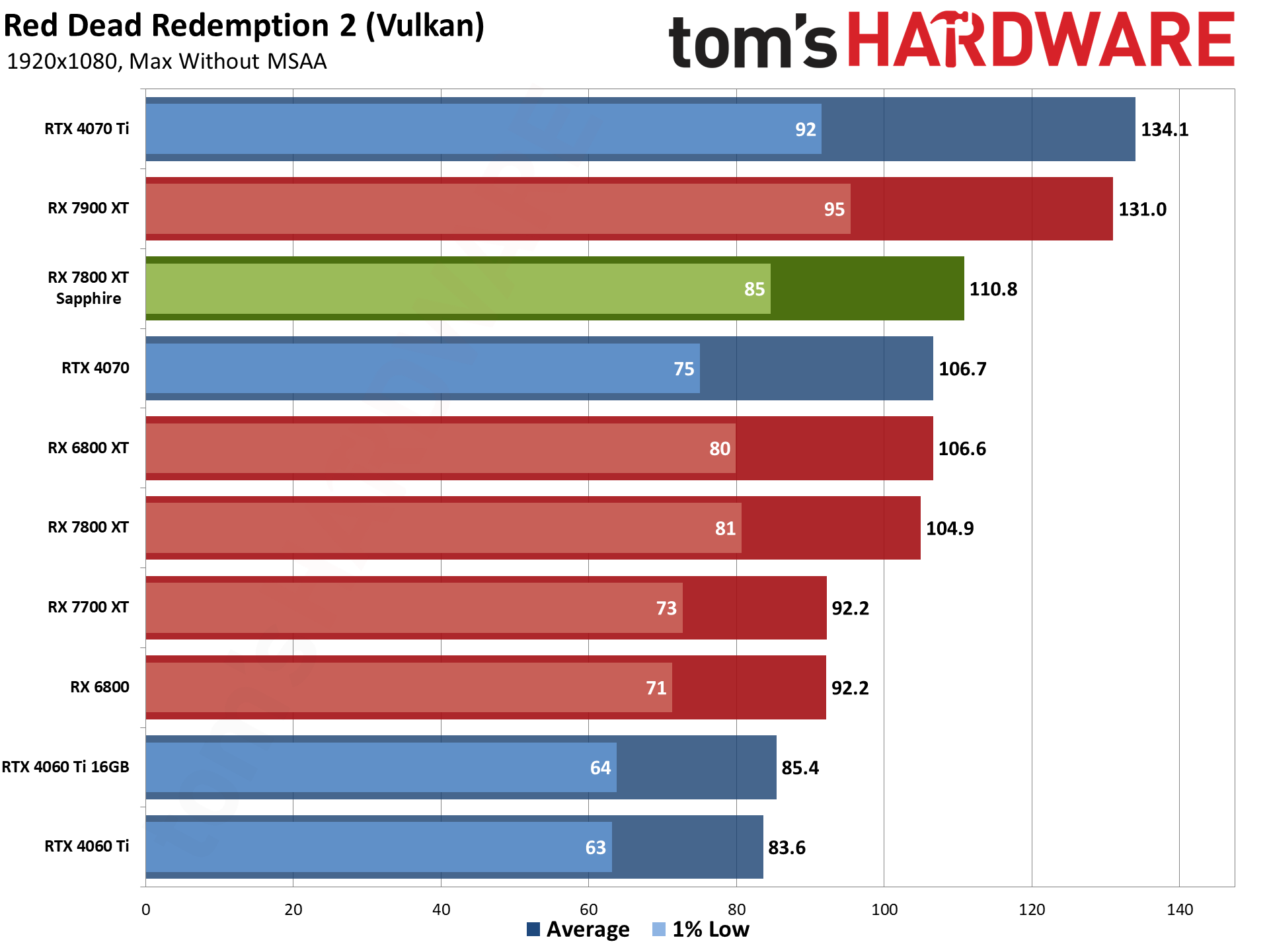
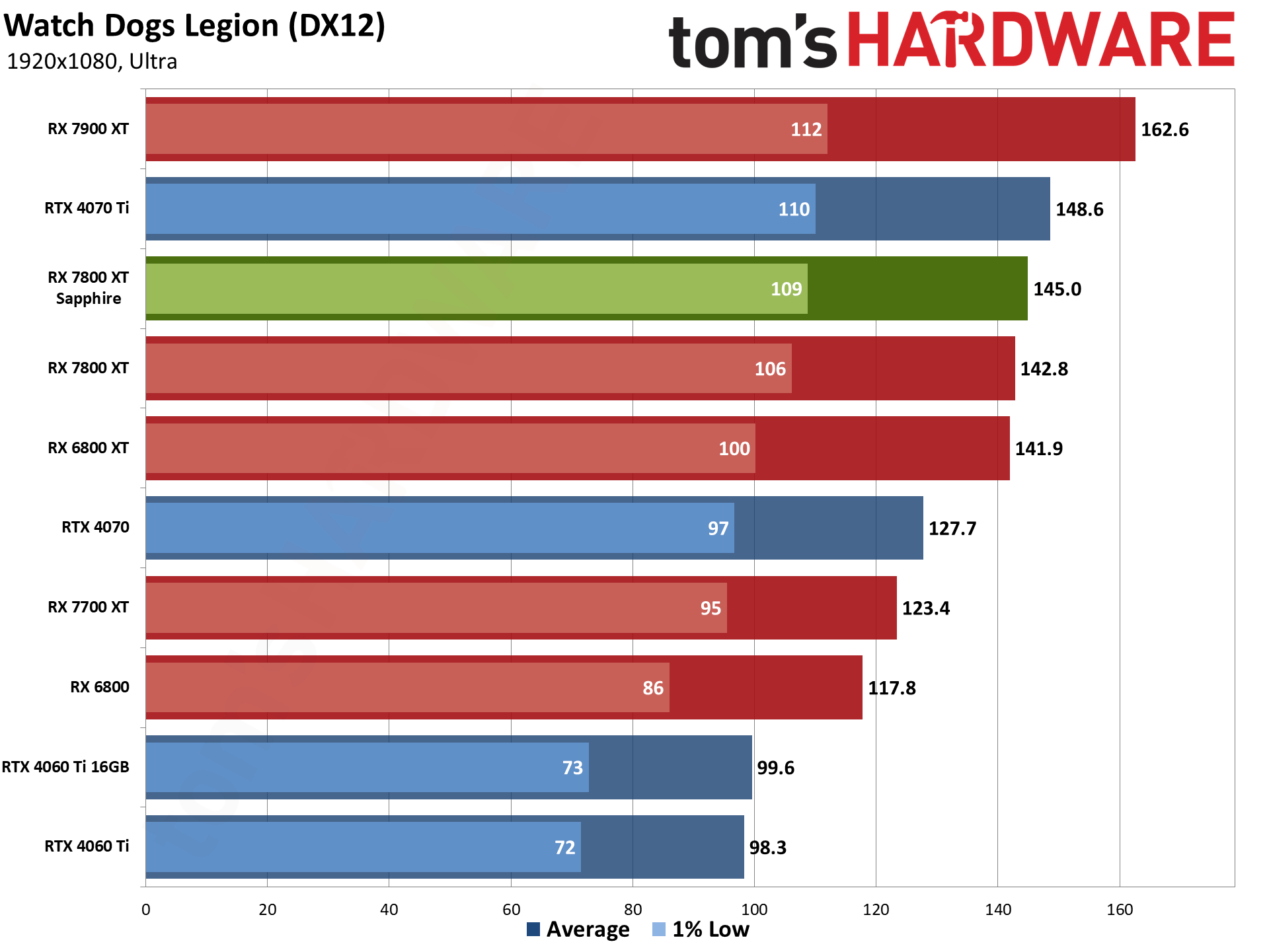
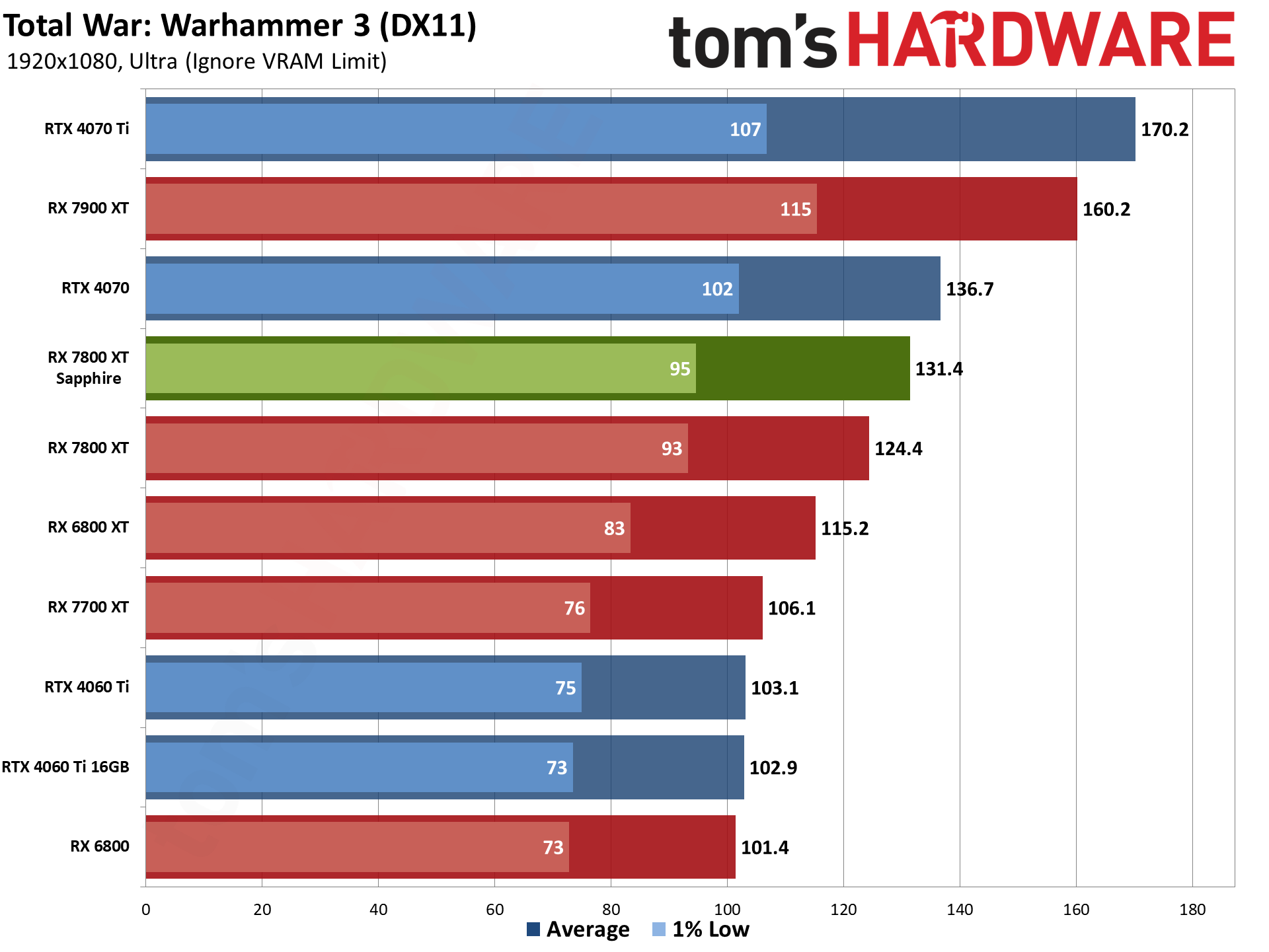
For our rasterization suite, Sapphire's card remains just a few percent ahead of the reference design. The RTX 4070 meanwhile trails by just 5% now, at least when we're not including the potential of Frame Generation: higher latency and smoothed out framerates.
There are also several games like Far Cry 6, Flight Simulator, and Forza Horizon 5 where we slam into the CPU wall and there's effectively no difference between many of the fastest GPUs. Just look at where the RX 7900 XT and RTX 4070 Ti land in those games and you can see they're obviously CPU limited to varying degrees — Flight Simulator is practically flat from the RX 7700 XT up through the RTX 4070 Ti.
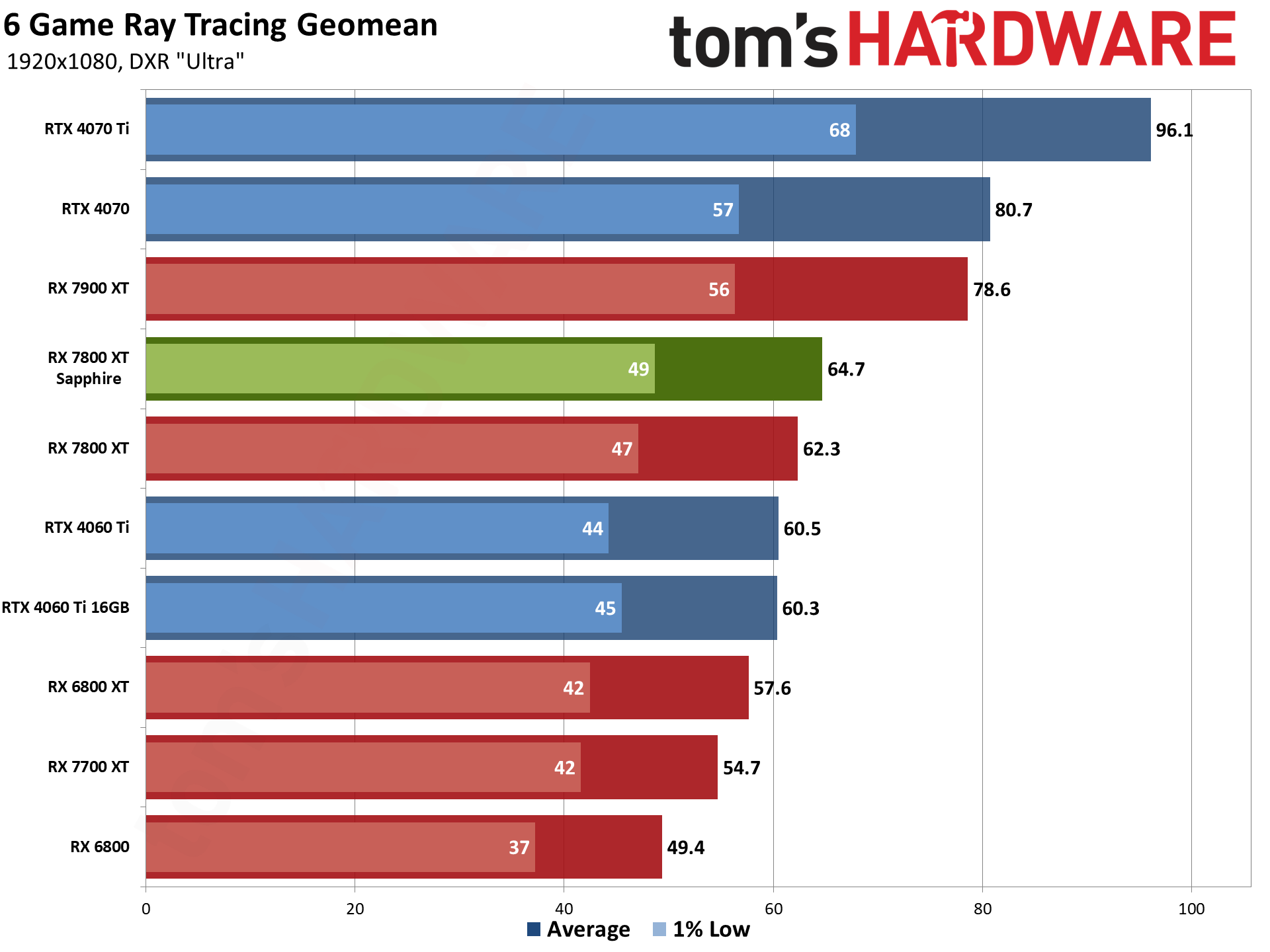
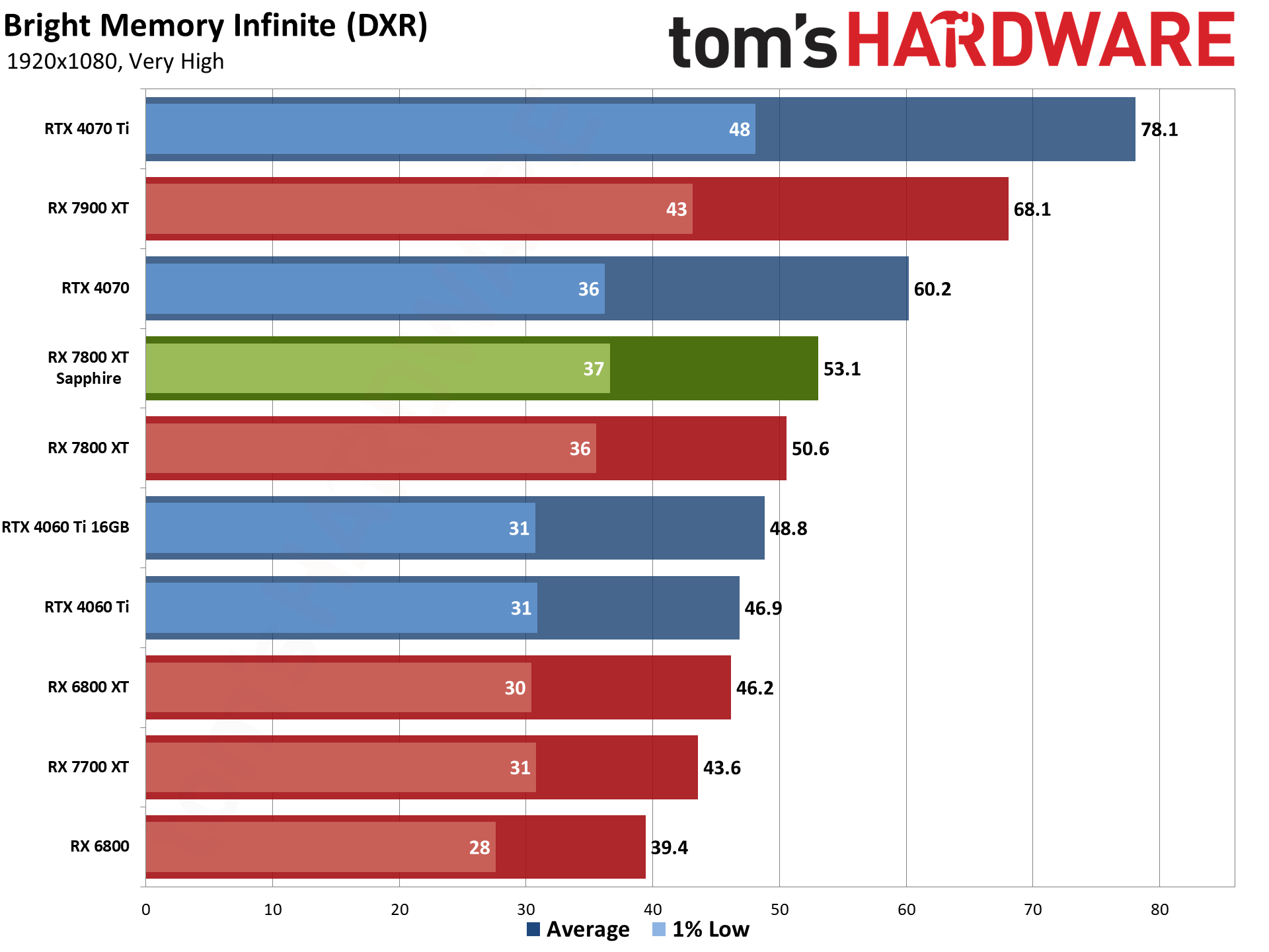
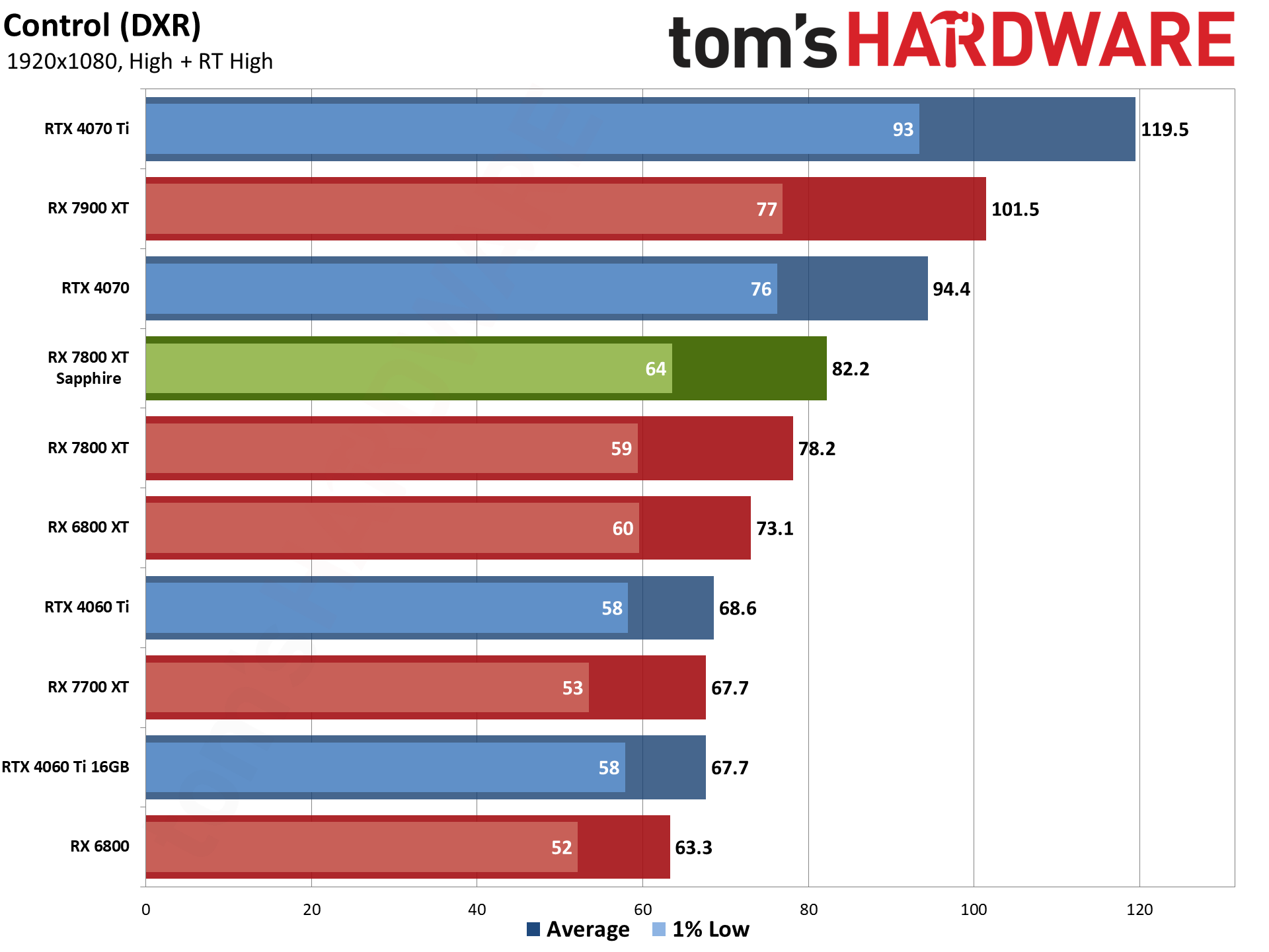
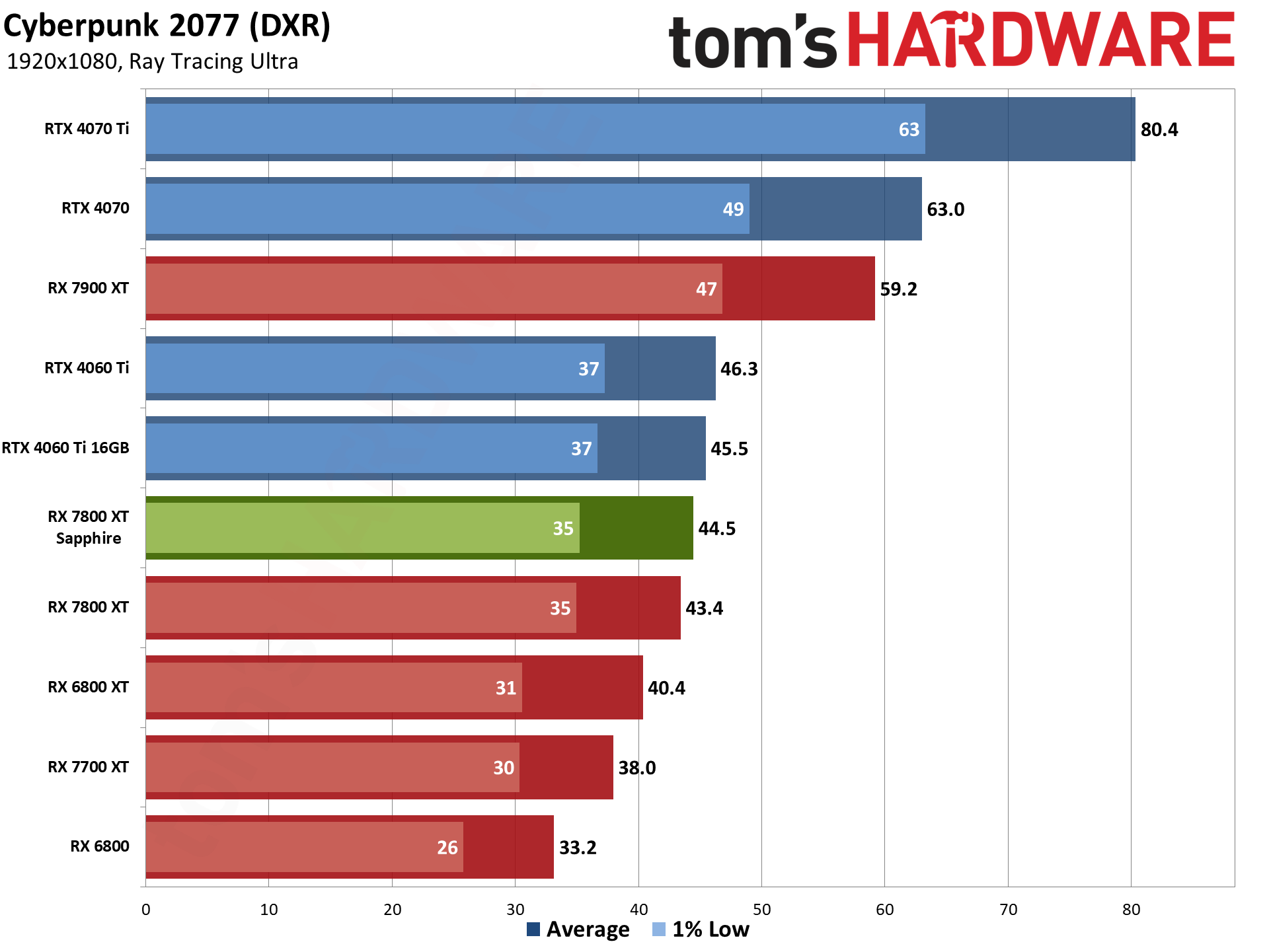
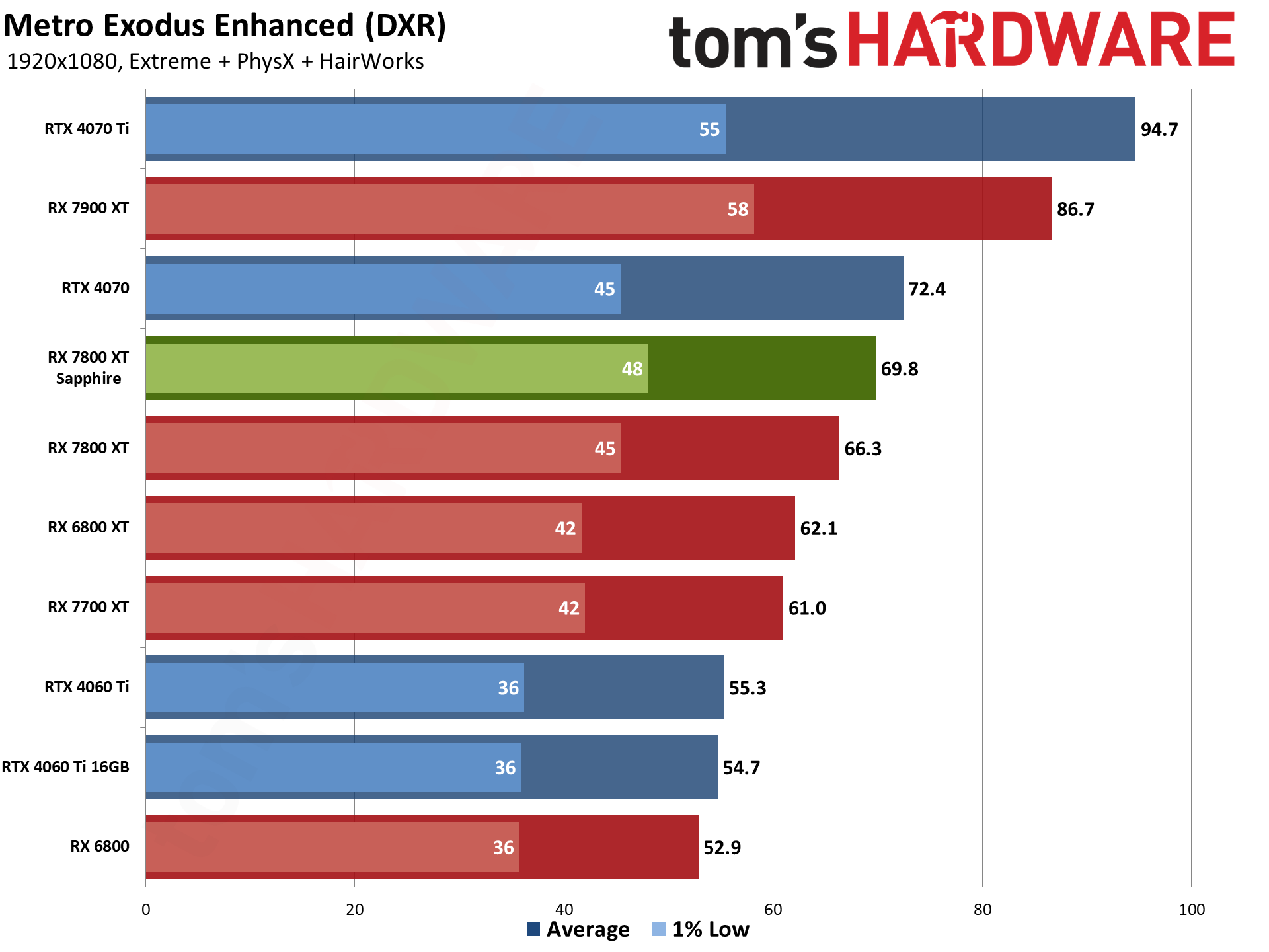
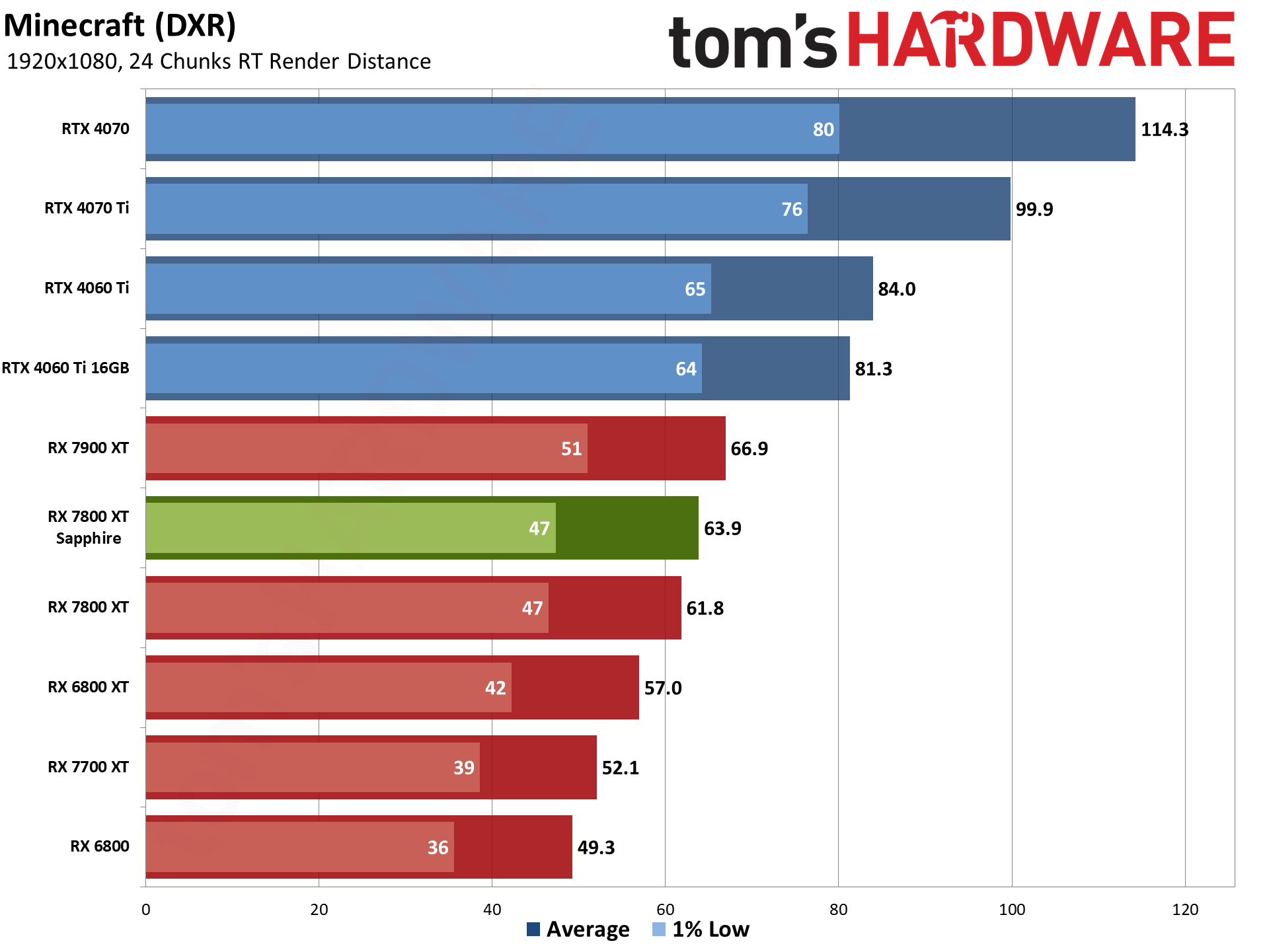
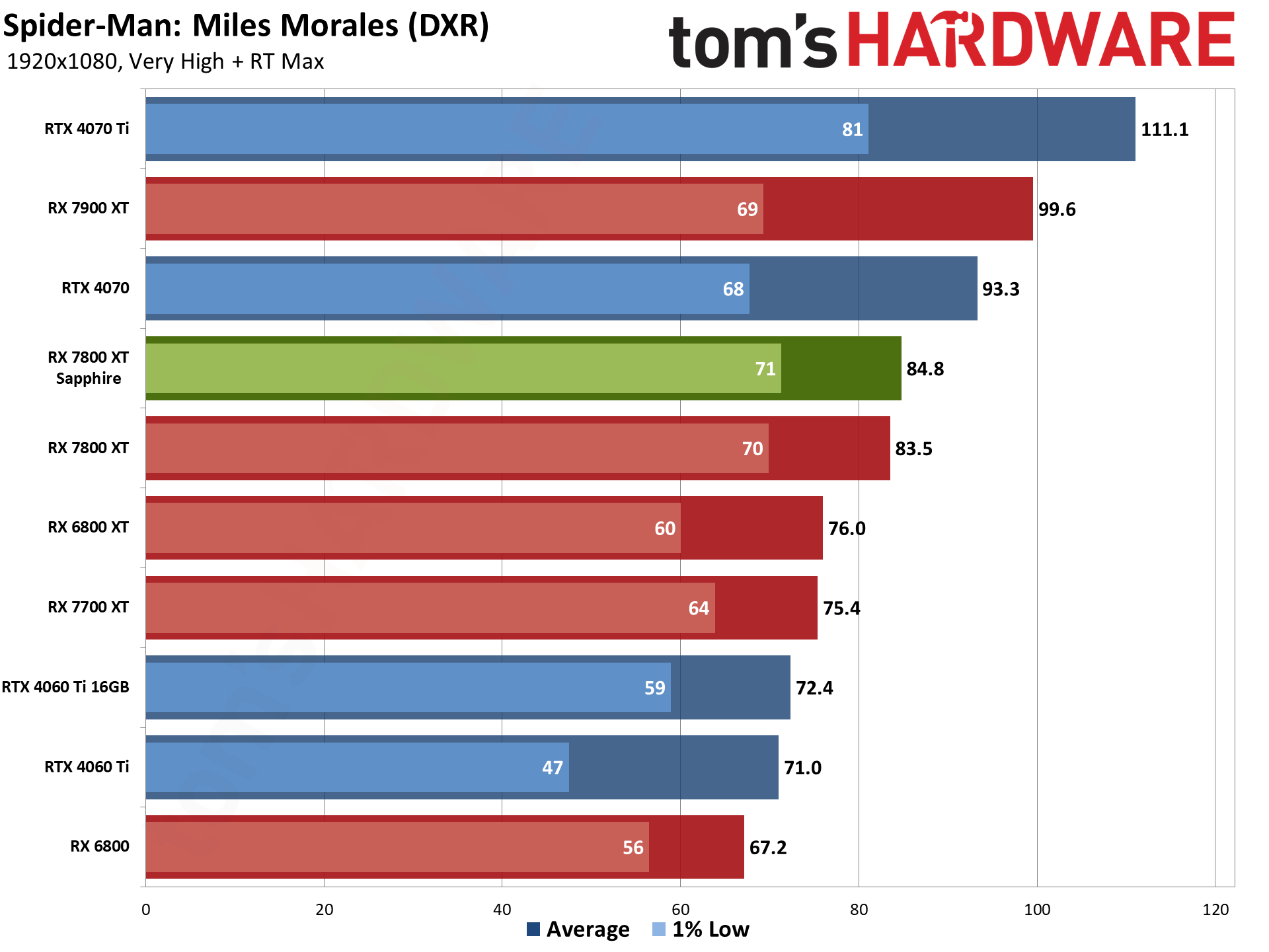
Unlike some of the rasterization games, none of the DXR games are hitting CPU bottlenecks, even at 1080p. That's no surprise, as ray tracing very much puts the bottleneck on the GPU, at least up until the very fastest cards like the RTX 4090.
The RTX 4070 leads the Sapphire 7800 XT by 25% overall, a slightly bigger gap than at 1440p. Sapphire beats the reference 7800 XT by 3.8% as well. So, again, if you're hoping to see bigger differences between custom cards and reference designs, you'll need to look at aspects other than raw performance.
So let's move on to power, thermals, and noise levels to see precisely what those other aspects might be.
- MORE: Best Graphics Cards
- MORE: GPU Benchmarks and Hierarchy
- MORE: All Graphics Content
Get Tom's Hardware's best news and in-depth reviews, straight to your inbox.
Current page: Sapphire RX 7800 XT Nitro+: 1080p Ultra Gaming Performance
Prev Page Sapphire RX 7800 XT Nitro+: 1440p Ultra Gaming Performance Next Page Sapphire RX 7800 XT Nitro+: Power, Clocks, Temps, and Noise
Jarred Walton is a senior editor at Tom's Hardware focusing on everything GPU. He has been working as a tech journalist since 2004, writing for AnandTech, Maximum PC, and PC Gamer. From the first S3 Virge '3D decelerators' to today's GPUs, Jarred keeps up with all the latest graphics trends and is the one to ask about game performance.
-
The 16 GBs of VRAM alone, are more than enough to instantly make this a better purchase than the pathetic 4070 Ti.Reply
-
Colif At least they didn't describe it as the Sexiest 7800xt, unlike KitguruReply
Paying extra for a quieter GPU is probably worth it. -
oofdragon So... 108fps vs 121fps against the 4070Ti, a difference no one can notice in real gameplay. That missing VRAM though? Even playing at 1440p we know it's not enough already, goes to show how overpriced Nvidias cards really are. So even if the 4070Ti costed $500 right now the 7800XT would still be the better buy. Thats the result of greed and planed obsolescence for you, a behavior I don't fund with my money. My 2 cents though, tight now the 6800XT is still the better buy at ebay around $400, it's virtually the same GPU.Reply -
Elusive Ruse The obsession with ray tracing is unhealthy, unfortunately all reviewers and influencers have drunk the kool aid. If you didn't know you would think it's some kind of ubiquitous feature across the entire gaming industry.Reply -
gg83 @JarredWaltonGPU why do you think the 6800xt is so close to the 7800xt? And do you think AMD spent a lot of money designing these new cards, or just took this generation off?Reply -
hnrich May as well just pay the little bit extra to get the cheapest 7900xt.....,. If you are paying more for a 7800xtReply -
PEnns ReplyElusive Ruse said:The obsession with ray tracing is unhealthy, unfortunately all reviewers and influencers have drunk the kool aid. If you didn't know you would think it's some kind of ubiquitous feature across the entire gaming industry.
And when Nvidia's cards are losing badly, they immediately include Ray tracing in the "reviews" where their cards have some advantage!!
Shameless shilldom. -
hnrich Reply
I think raytracing will become more and more common though, especially to highlight the advantage of pc gaming over consoles. A lot of AAA titles are featuring it now. That and lack of dlss make me reluctant to buy an AMD card. I think fsr2 has pretty poor image quality.Elusive Ruse said:The obsession with ray tracing is unhealthy, unfortunately all reviewers and influencers have drunk the kool aid. If you didn't know you would think it's some kind of ubiquitous feature across the entire gaming industry. -
NeoMorpheus Reply
But per the article….valthuer said:The 16 GBs of VRAM alone, are more than enough to instantly make this a better purchase than the pathetic 4070 Ti.
-Cons
AMD RDNA 3 isn't as efficient as Nvidia
We get it, loyalty above anything else. -
Lamarr the Strelok For at least a few years now Nvidia has been more power efficient compared to an AMD card with similar specs.I despise Nvidia right now but it's generally true.I'm on AMD right now and have had Nvidia cards before.Reply
So no. It has nothing to do with 'loyalty'.
